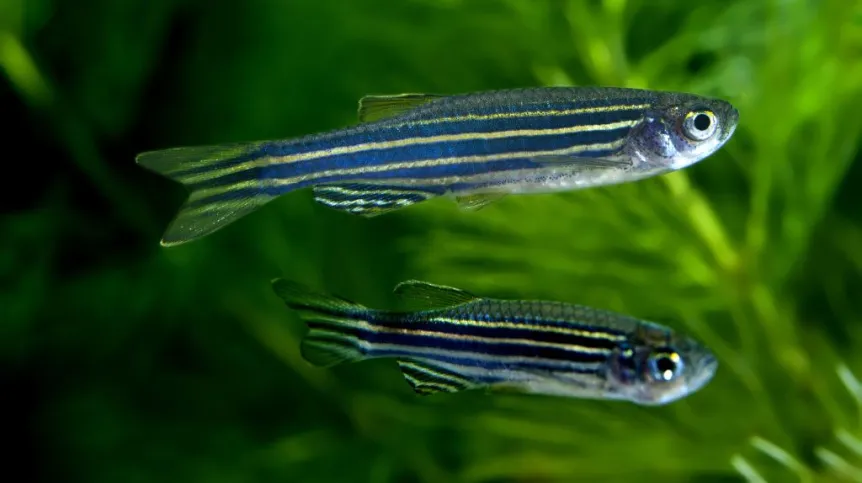
Advanced Lightsheet.Z1 fluorescence microscope, the only one in Poland, is located in the International Institute of Molecular and Cell Biology in Warsaw (IIMCB). Scientists will use it to conduct innovative research on zebrafish in the FishMed project.
"With the recently purchased microscope, we will be able to conduct cutting-edge research, which has so far been impossible" - reported the International Institute of Molecular and Cell Biology in a release sent to PAP.
The device allows for the microscopic imaging of proteins and other molecules labelled with fluorescent dyes. Lightsheet.Z1 differs from the standard microscopes not only by a completely enclosed structure, it also has a different optical system .
Under the new microscope scientists can watch live fish without doing them any harm.
"Instead of a single lens to illuminate the sample and collect the fluorescence light, it has a separate sample illumination system with thin plane of the excitation light, and vertically positioned fluorescence detection system. This allows for a much more efficient use of the excitation light, and allows to conduct long-term intravital experiments without damage to the sample. Furthermore, the sample can be imaged from either side" - reads the International Institute of Molecular and Cell Biology release.
According to the Institute representatives, Lightsheet.Z1 operation and benefits related to imaging of large specimens, such as zebrafish, compared with the classical fluorescence microscope, are roughly comparable to the advantages a CT scanner has over conventional X-ray camera in diagnostic studies.
IIMCB wants to equal the quality of research and innovation of the leading research institutions in the European Union. Part of this is the FishMed project conducted since December 2012. In the project, the IIMCB, as the first research institute in Poland, introduced zebrafish as a model organism on such a large scale.
PAP - Science and Scholarship in Poland
ekr/ ula/
tr. RL













